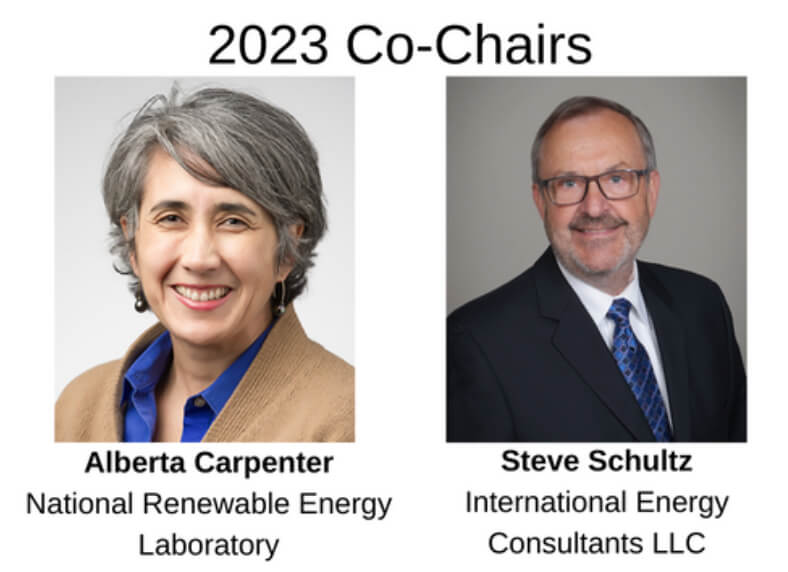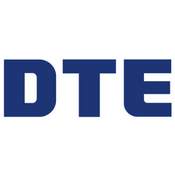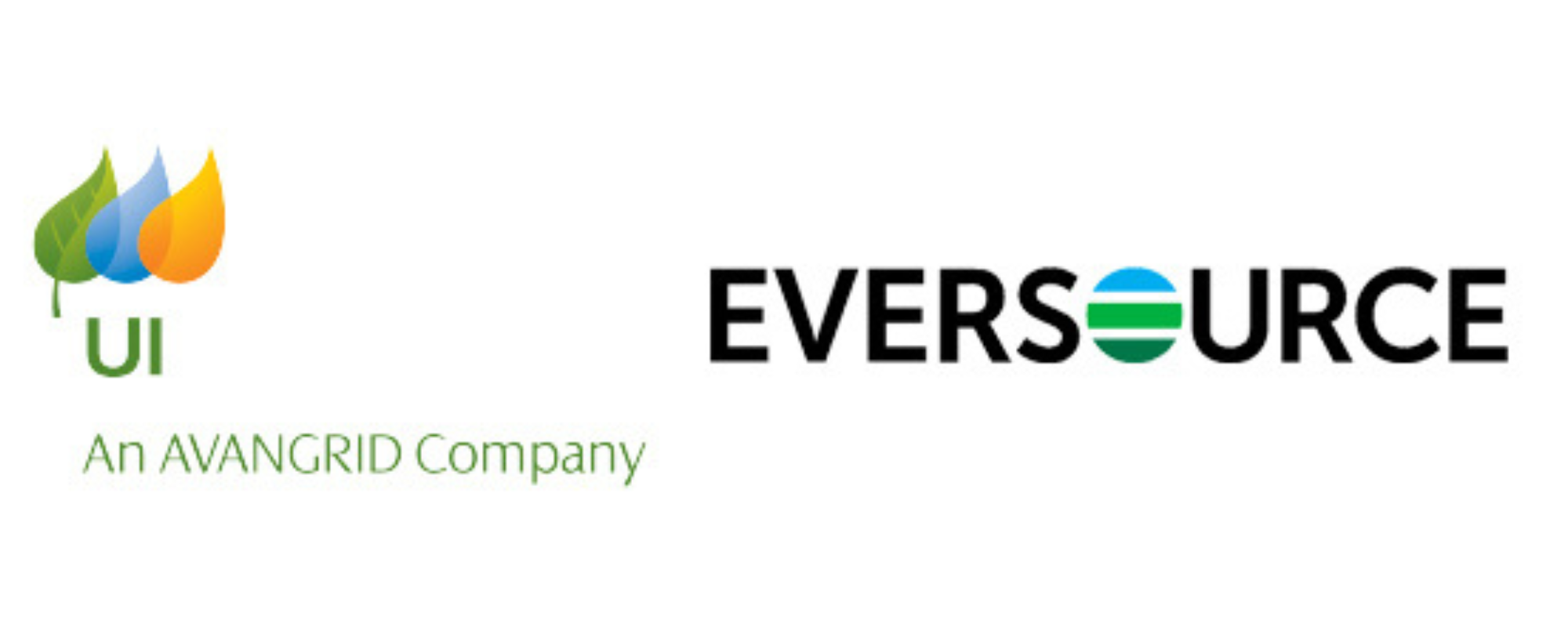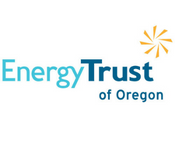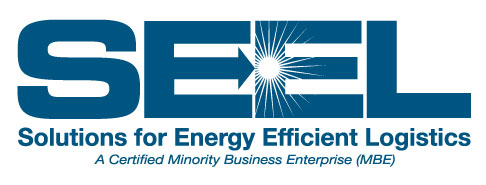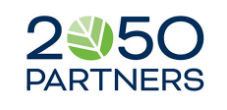Sponsors
Sponsorship Opportunities
If you would like to learn more about ACEEE conference sponsorships, contact Alan Raymond.
Panels/Panel Leaders
Click on the title of each panel for a full description.
Panel 1: Energy Efficiency
 |
Panel 2: Energy Resources
 |
Panel 3: Material Efficiency
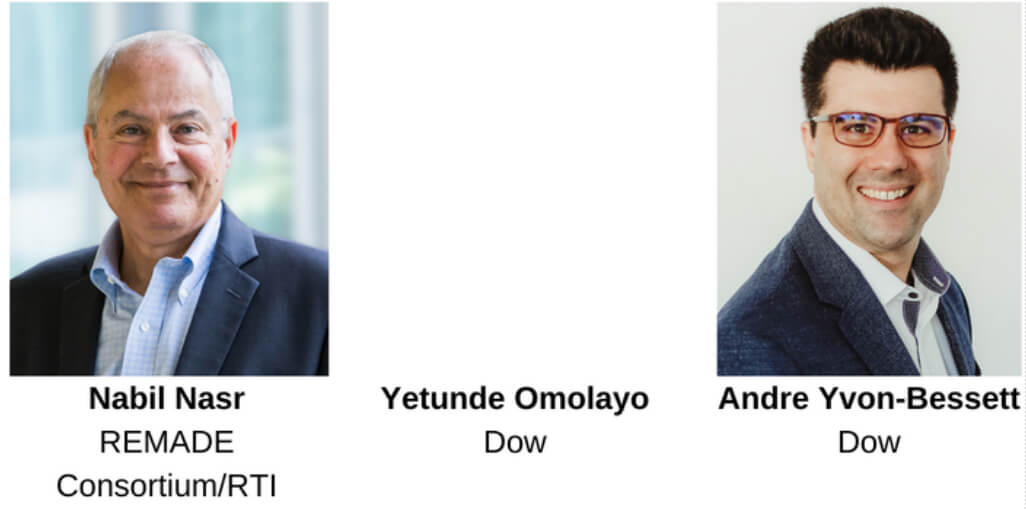 |
Panel 4: Workforce Development
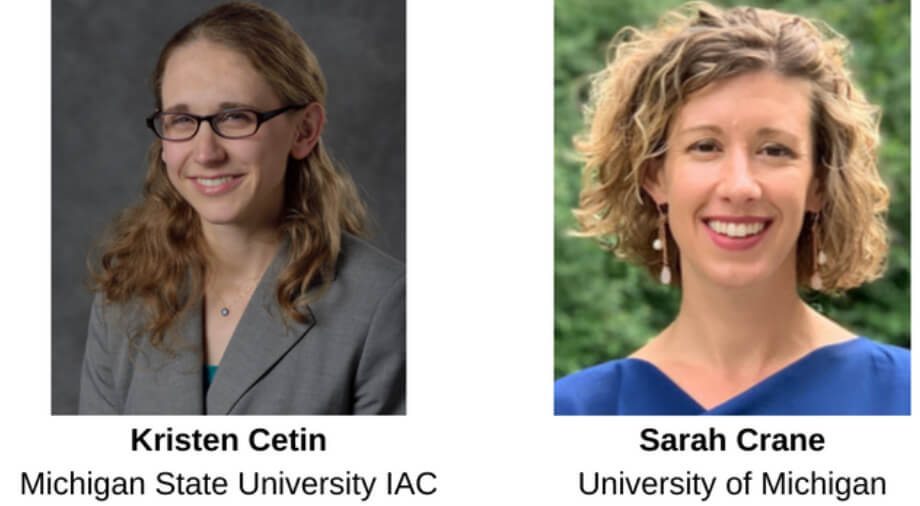 |
Program
Click here to see the full program.
Click here to view the Program at a Glance.
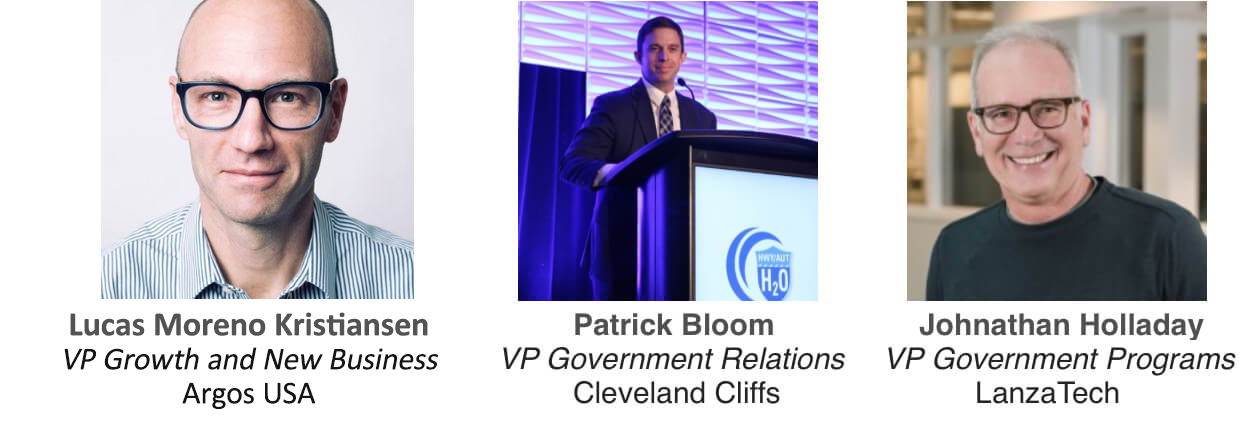 Plenaries
Plenaries
Perspectives from Industry: July 12 (9 – 10 am)
This session featured two industry leaders: Patrick Bloom, VP Government Relations at Cleveland Cliffs, and Johnathan Holladay, VP Government Programs at LanzaTech. Each discussed how their companies identify steps needed to decarbonize the production of goods and materials.
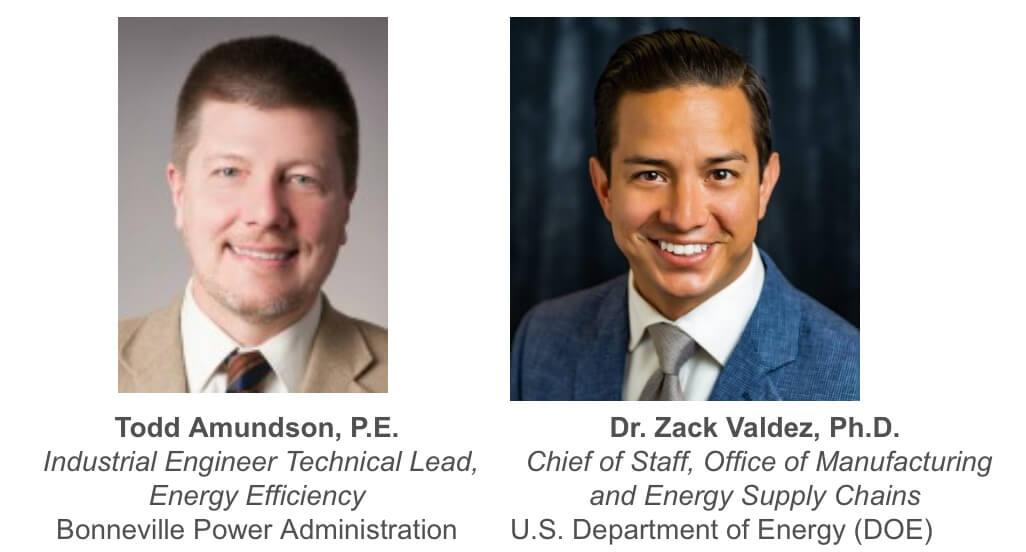 Government and Utility-Sector Policies: July 13 (9 – 10 am)
Government and Utility-Sector Policies: July 13 (9 – 10 am)
This session was a moderated panel discussion with opening remarks by speakers Zack Valdez, Chief of Staff, Office of Manufacturing and Energy Supply Chains, and Todd Amundson, Industrial Engineer Technical Lead at Bonneville Power Administration. Dr. Valdez spoke about the role that the Federal Government is playing in enabling a transformation of U.S. Industry to more sustainable, secure, and globally competitive future. He also spoke about the efforts that the U.S. Department of Energy is undertaking to support this transformation. Todd discussed the role of utilities in supporting industrial customers in implementing energy efficiency and electrifying industrial processes.
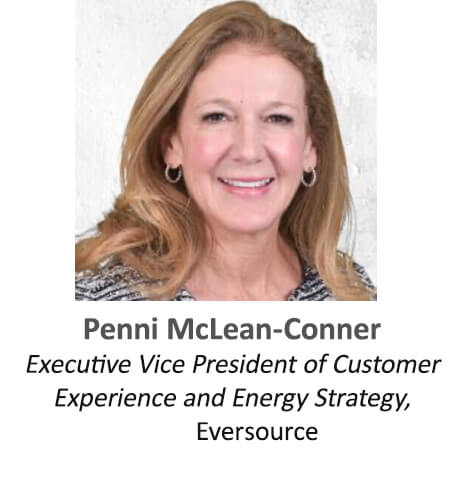 Women in Energy Efficiency Breakfast: July 12 (8 – 9 am)
Women in Energy Efficiency Breakfast: July 12 (8 – 9 am)
To explore the experiences of women in industrial energy, ACEEE hosted a networking breakfast at the 2019 ACEEE Industrial Summer Study featuring two leading figures in the field. This second gathering of the Women in Energy Efficiency Breakfast offered a unique opportunity for women in the industry to meet, discuss their experiences, and network. Penni McLean-Conner, Executive Vice President of Customer Experience and Energy Strategy, Eversource joined us as the featured speaker.
Action Session: “Building on the Framework of the DOE Industrial Decarbonization Roadmap”: July 12 (3:30 – 5 pm)
In September 2022, the U.S. Department of Energy (DOE) released its Industrial Decarbonization Roadmap, a foundational reference that identified major technology pathways to a decarbonized industrial sector in the United States and quantified their potential impact. This Action Session convened a panel of industrial energy and emissions experts in a roundtable forum who provided a diverse set of perspectives on the Roadmap and follow-on work needed to advance its decarbonization agenda. This session included a moderated panel discussion and interactive Q&A. Representative discussion topics included: (1) critical outstanding analysis needs to advance our understanding of the decarbonization problem in the United States; (2) ongoing efforts across government, academia, and industry to accurately measure impacts of industrial decarbonization technologies; (3) energy and emissions data availability, challenges, and opportunities; (4) the role of a circular economy in a decarbonized industrial sector; and (5) the intersections between discrete Energy Efficiency, Energy Resources, Material Efficiency, and Workforce Development strategies in an achievable decarbonization action plan.
Inclusivity in Industry Mixer: July 12 (5 – 6 pm)
This informal gathering brought together members of underrepresented communities in the industry sector for an evening of networking and great conversation. Summer Study attendees came together in a supportive space to foster collaboration and professional relationships.
Panel 1 Roundtable Session: “Energy Management System Peer-to-Peer Roundtable for Manufacturers”: July 13 (1:30 – 3 pm)
This roundtable was for manufacturers to learn from peers with an interest in building thriving energy management system business practices. Led by 50001 Ready experts from the manufacturing sector participants discussed strategies to gain top management buy-in, best practices, and how energy management systems can help achieve decarbonization goals. Attendees joined for a session full of valuable discussions and meaningful networking opportunities.
Action Session: “Opportunities for Federal Programs to Support Industrial Decarbonization”: July 13 (3:30 – 5 pm)
The past several years has seen congress provide DOE and other federal agencies unprecedented levels of funding for industrial energy efficiency and decarbonization. Only a small portion of these funds have been programmed with more emerging in the coming months and years. Staff leads from DOE and other agencies discussed current and future industrial program opportunities and answered questions in this interactive session.
Other (optional) pre-event meetings
Embodied Carbon Roundtable Workshop: July 11 (1pm – 4:30 pm)
Click here to view the workshop/roundtable materials
SEM Summit: July 11 (11 am – 5 pm)
The SEM landscape is ever growing and evolving – attendees joined us at the 2023 SEM Summit (Tuesday July 11th) to enhance their SEM and decarb knowledge. They addressed their region’s challenges while working alongside others in the SEM community. They left the summit with tangible and useful tools and concepts to elevate their work. And as always, we had a great time with some of the funnest folks in SEM! For more information about the Collaborative, check out NASEMC.org.
Industrial Heat Pumps Workshop: July 11 (10 am – 5 pm)
Industrial decarbonization will require the electrification of process heating, which today is largely met by fossil fuels. ACEEE research has found that industrial heat pumps (IHPs) can cut the energy use associated with process heat in key industries by up to one third and enable CO2 savings of between 30-43 million tons per year. Capital investments for IHPs to achieve these savings are estimated at $17 billion with associated energy cost savings of $5.6 billion per year. At the 2023 Industrial Heat Pump (IHP) Workshop, hosted the day prior to ACEEE’s 2023 Industrial Summer Study, we explored this critical technology. Focuses included demonstrations, market transformation initiatives, and available funding to accelerate domestic manufacturing of IHP, market technical support, and plant implementation. The Workshop also included a presentation on the global IHP experience from international experts.

